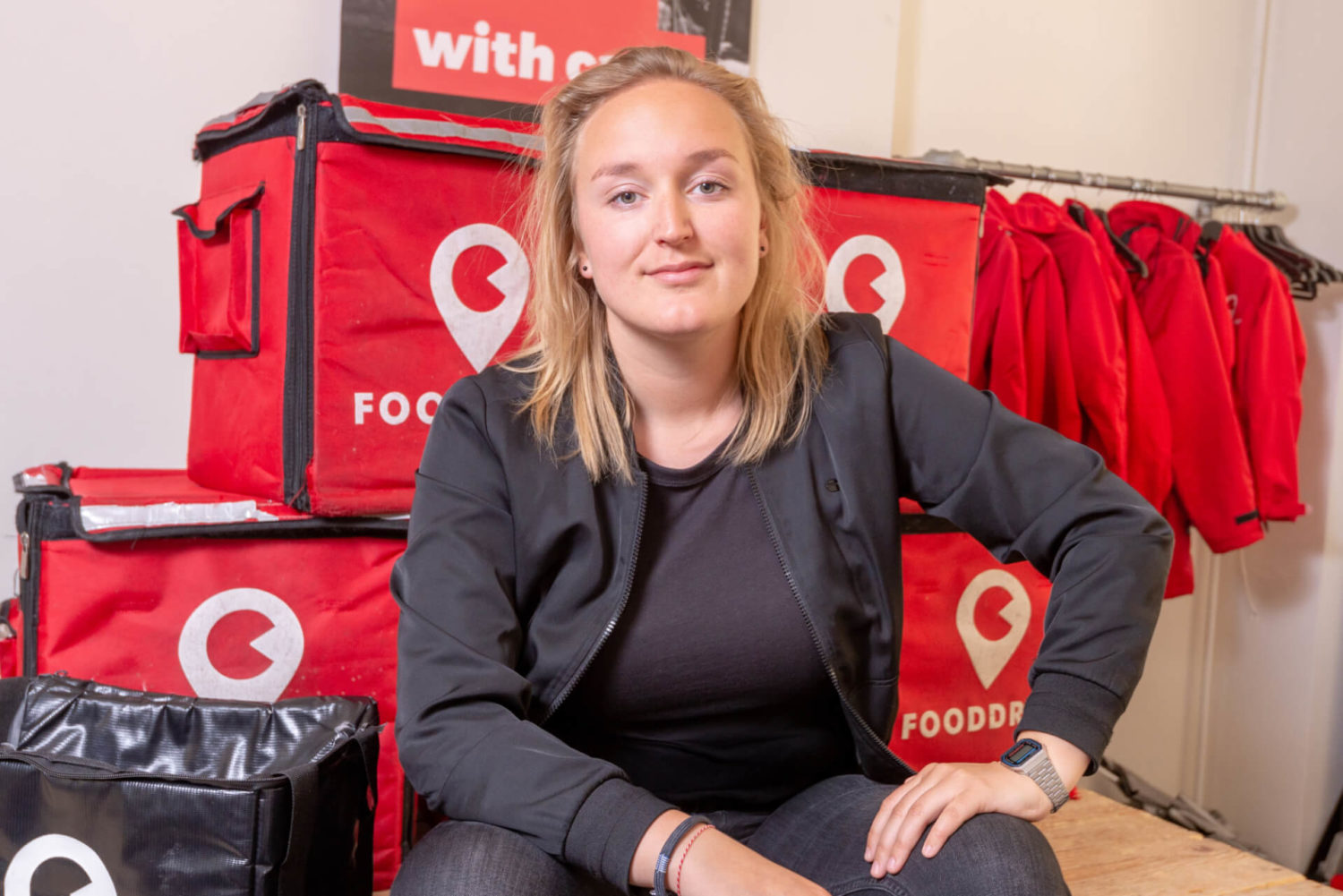The corona crisis ushered in an extra busy period for Jantine Doornbos of Fooddrop/ Dropper. The delivery platform was already going well, but because of the intelligent lockdown where people are urged to go out as little as possible and all catering outlets are closed, her company experienced rapid and large growth. She also marketed a new product, ideal for today's conditions. "We were very well prepared, so we can handle this well" Doornbos looks back and ahead.
Potting soil and kitchen equipment
Doornbos and her colleagues cleverly anticipated the measures promulgated in mid-March. "We already had all the emails ready to let them know that we would be able to provide excellent support to our existing and potential new partners with our logistics. We were, of course, always delivering meals with Fooddrop, and within a week dozens of additional restaurants joined. At existing restaurants, the need for delivery increased exponentially," Doornbos said. But that wasn't all. The "App your Drop" service was very quickly primed to do what Doornbos had conceived it for: deliver anything consumers wanted. "Groceries, potting soil, kitchen appliances: you can't think of anything or it has been bought and delivered by us in the past few weeks. All communication goes through Whatsapp and our platform does the rest. Ideal now that people are staying at home. Our sales have increased by hundreds of percent."
Perfect and successful litmus test
The growth in delivery needs is not only good for the revenue numbers, in particular, the power of the smart platform that Doornbos and her team have been working on for years is now becoming especially apparent. "Positioning Dropper well has proven to be a challenge. After all, we're not just a delivery service, essentially we're a tech company. Our software provides for linking delivery orders to an available courier and then, for example, calculates the smartest route for this delivery. On my dashboard, I see exactly how many orders there are, which couriers are where and gives a signal when a delivery is successfully completed. In recent weeks, this involved hundreds of orders at the same time, making it a perfect litmus test. And the system passed with flying colors," Doornbos explains. When asked if this makes it similar to the technology of Uber, for example, she answers with an important Unique Selling point: "Uber only works with Uber drivers and delivery drivers. We think in courier teams. These don't all have to work for Fooddrop."
Use what is already there
This essential difference makes Dropper's platform suitable for scaling up to other places in the Netherlands. Doornbos: "Right now, for example, we are experimenting in a number of villages. If one restaurant delivers and the other nine do not, then it is smart to divide the delivery capacity among all those ten restaurants. Our software provides for exactly that, because otherwise that would be a huge operation. Now it takes almost no extra time and everyone benefits. We use what is already there instead of rigging up something new." So it could be that restaurant X's food is delivered by restaurant Y's delivery driver because there was availability there at that time. A lot more efficient and cheaper.
The last mile can be more efficient with Dropper algorithm
And Dropper's ambition extends further. What works in food delivery also works for other goods and transportation processes. Dropper focuses specifically on "the last mile" of delivery. Doornbos: "Transporting stuff, any stuff, to a city is fairly easy and efficient. There is a distribution center in or around such a city, and from there it has to go a short distance to the consumer. But that small piece is just so costly and, moreover, is carried out by all sorts of different providers. For example, in one street it can happen that six different vans come to deliver within the hour. That is really inefficient, especially since the city is already so busy. Often those vans then drive back empty, which is also a waste. Our software solves this inefficiency by looking independently of the brands and parties to see what transport lots there are and deploying them as smartly as possible. That can save an average of 25% in costs, which is a lot. Our system is ready for it. Researchers from the RUG have looked at our algorithms and they are among the best in the market. I'm really proud of that."
Great collaborations
For now, Dropper's ten-person team is mostly busy processing all the delivery requests and Doornbos predicts that, even if the measures are relaxed, it will remain busy: "Our brand awareness has increased enormously, I really believe that people will soon want that convenience. We are also seeing an enormous innovation in restaurants and businesses when it comes to products that can be delivered. The doubters or refusers have all changed their minds and that is producing really nice collaborations. The Grokaalbox is an example of this: a box full of products from local entrepreneurs that are then delivered to your home by couriers from our network. We really don't earn anything from that, but it really gives a lot of energy and that is also important." However, she herself has recently been unable to use her own service: "I just moved to Haren, we don't deliver there at the moment" she laughs.
Dropper unfortunately declared bankruptcy in March 2021.
